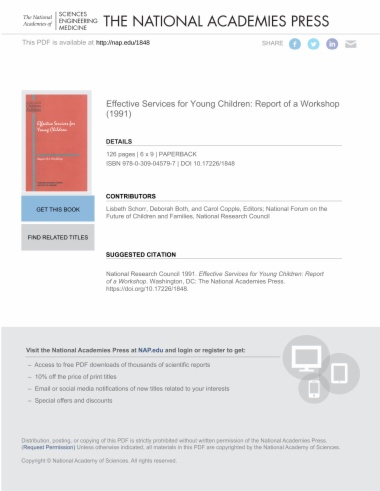

This nation has an enormous stake in reversing the alarming deterioration of the circumstances in which poor and otherwise disadvantaged children grow up. Many past efforts to reverse unfavorable trends in damaging outcomes (school failure, teenage pregnancy, substance abuse, and violent crime) have been relatively ineffective.
Effective Services for Young Children describes the available options and steps that could be taken to improve the situation through more effective services to children and families. Many of the nation's leaders in current efforts to improve services, and many who are at the forefront of attempts to understand these efforts in current contexts contributed to the workshop and are represented in the volume.
Policymakers, administrators, and practitioners will benefit from their perspectives on the possibilities for major improvements in education, social services, health care, and family support services.